#German election 2021
Photo

Ricarda Lang
Gender: Female
Sexuality: Bisexual
DOB: 17 January 1994
Ethnicity: White - German
Occupation: Politician (The Greens)
Note: First openly bisexual Bundestag member upon her election in 2021
#Ricarda Lang#bisexuality#lgbt#lgbtq#lgbt politicians#female#bisexual#1994#white#german#politician#first
58 notes
·
View notes
Text
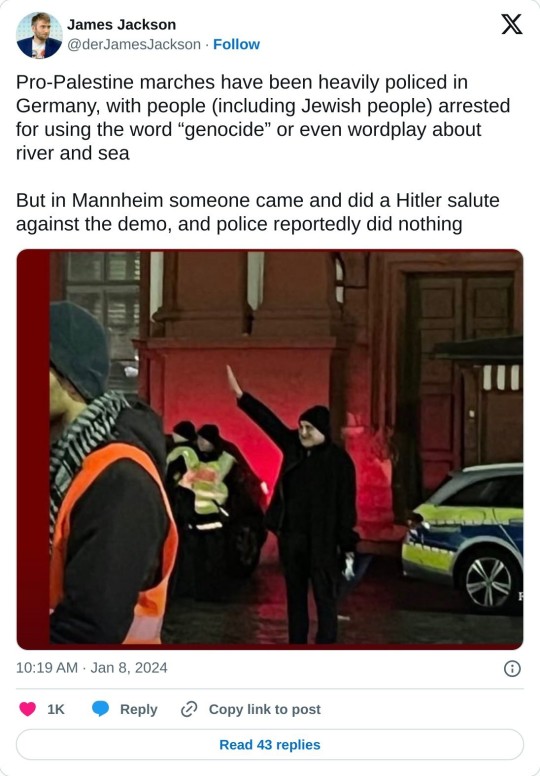
This dumb piece of misinformation is making the rounds, time to debunk this shit.
This Nazi is not saluting against the demo, does he not know what a salute is? He is saluting THEM.
The Nazis have always been pro Palestine, and they have never stopped. Here are a few examples:
1. Website of the Neo-Nazi Party NPD. The headline says "Freedom for Palestine"

and another one from 2021, with the headline "Palestine - a struggle for freedom and self-determination":

2. Nazis holding a banner that says: "Stop the warmongering USA and Israel - Solidarity with Palestine"
The black. white and red flag is the German imperial flag that Nazis use because the swastika is illegal in Germany.

Here's the German Imperial flag with the NPD logo:
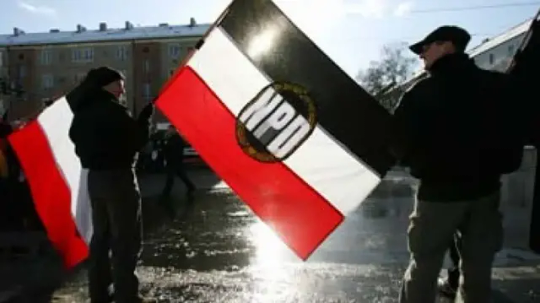
3. Nazis holding flags of the German Empire and Palestine and a large banner that says "Israel is our misfortune":

It is an "updated" version of the tagline "Jews are our misfortune" from the Nazi propaganda weekly "Der Stürmer":
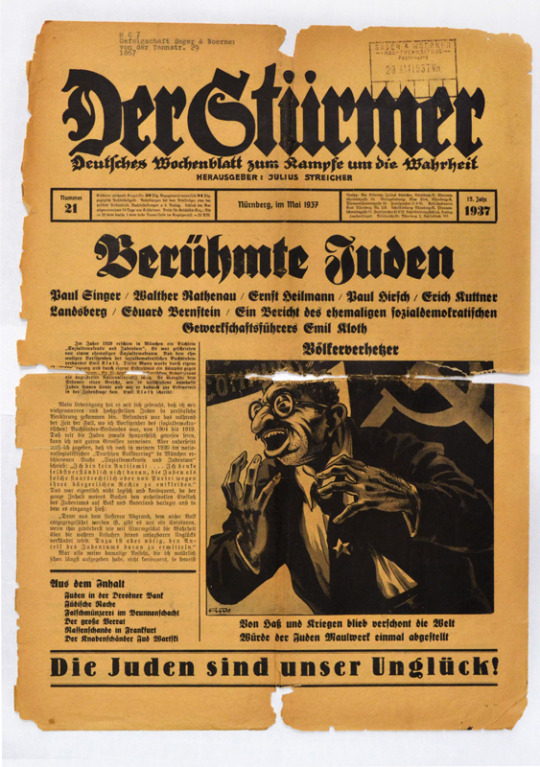
4. Another Nazi Party in Germany "Die Rechte" ("The Right") uses the same fucking slogan. Their election poster says "Stop Zionism: Israel is our misfortune! End it already!"

Of course this party also loves to wave the flag of Palestine:

One more! Here they are waving the Palestinian flag and a banner that reads: "Sick of multi-culturalism and the green (party's) homolobby? - Come join us!" which sounds very Hamas to me.
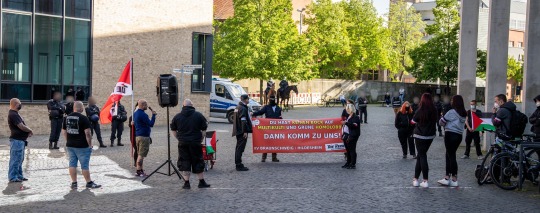
If you're a leftie like me and join pro Palestine marches, do not pretend that Nazis hate you, they applaud you! Think about who you're bedfellows with and why.
28 notes
·
View notes
Text
Schumacher's attitude a 'positive surprise', says WEC team-mate Lapierre
Sportscar racing veteran Nicolas Lapierre says he was "positively surprised" by Alpine team-mate Mick Schumachers attitude from the first day the German stepped into a World Endurance Championship hypercar.
Former Haas Formula 1 racer and current Mercedes reserve Schumacher showed a desire to adjust himself to the multi-driver format of sportscar racing instead of going out for individual glory, according to four-time Le Mans 24 Hours class winner Lapierre.
"When Mick came to his first test, it was in Jerez," said Schumacher’s Alpine teammate, Lapierre. "For me, when drivers come in from single-seaters, even more Formula 1, there are two options. Either he wants to be a real sportscar driver, share the car and work with his teammates, or he just wants to shine.
I was very positively surprised with Mick since day one. He really wanted to work as a team, and it suits him quite good, as well. And his pace was straight away very fast. This we knew [already]; we had no doubt about this. The only thing now is to have a little bit of traffic management and this kind of stuff, because this is very new [to him]."
Schumacher first got a chance to test the Alpine A424 LMDh last October and impressed the French manufacturer enough to earn a seat in its line-up for the 2024 season, joining team stalwarts Lapierre and Matthieu Vaxiviere aboard the #36 car.
Prior to his Hypercar move, the German driver spent two seasons competing in F1 with Haas from 2021-22, scoring a best finish of sixth on his second visit to the Red Bull Ring for the Austrian Grand Prix. He remains on Mercedes' books in a reserve role in 2024 and, if required, can be called in by the Brackley-based squad even on WEC race weekends.
Lapierre believes Schumacher's experience of working with the title-winning Mercedes F1 squad helps bring a new perspective to the Signatech-run Alpine team.
"He is bringing some good stuff from Formula 1 because he is working with one of the best teams on the Formula 1 grid," he said, "so this brings us some fresh ideas, some new feedback, which has also been very helpful in this project."
Schumacher spent the 2023 season on the sidelines after being dropped by Haas in 2023 in favour of countryman Nico Hulkenberg, electing not to compete in any other category during his first year out of F1. The German driver reiterated that he is looking for comeback opportunities in grand prix racing, but made it clear his current focus is on his Hypercar programme with Alpine.
"I'm here now. What the future holds is quite difficult to predict and foresee," said the 24-year-old. "Obviously my focus for now is WEC, but I would be lying if I would say that I don't have an eye on Formula 1. There are a lot of things happening right now. Who knows what opportunities are presented to myself in a couple of months' time. I will deal with that when it's time."
Schumacher, Lapierre and Vaxiviere finished twelfth overall in Saturday's opening round of WEC in Qatar, three laps down on the winning #6 Porsche Penske LMDh of Laurens Vanthoor, Kevin Estre and Andre Lotterer.
Alpine stable-mates Paul-Loup Chatin, Ferdinand Habsburg and Charles Milesi scored points in eighth place aboard the #5 Alpine A424 to lead a successful return to Hypercar for the French manufacturer.
"We had the pace to fight for the points, which was a bit unexpected, so we can be happy about it and proud of ourselves," said Schumacher. "It’s great the sister car managed to score."
#mick schumacher#f1#formula 1#wec#fic ref#fic ref 2024#not a race#2024 not a race#between bahrain and saudi arabia 2024#between qatar and imola 2024
22 notes
·
View notes
Text
SONNEBERG, GERMANY—First, in true German fashion, the rules were outlined: no alcohol on site, flagpoles capped at three meters, no protesting past 8 p.m. The demonstration followed, with hundreds congregated in the town square shouting insults at the incumbent government; cracking jokes at the expense of refugees, the LGBTQ+ community, and the media; and waving a sea of German flags, with a few Russian ones dotted among them.
“Anyone who dares call us Nazis will be reported to the police,” one of the protesters shouted from a makeshift stage propped up outside Sonneberg’s City Hall, a white mansion built between the world wars. “Germany first,” the protester continued, beckoning the crowds to join in singing the national anthem under a rainy, dark sky.
At 8 p.m. sharp, the crowd quickly dispersed—but they’ll be back next Monday, as they are every week. During the COVID-19 pandemic, they rallied against lockdowns. Now, they call for the overthrow of the current government coalition, and in recent months, the numbers of agitators have started to swell. Many are affiliated with the right-wing party Alternative for Germany (AfD), and although members say they strongly reject what Nazi Germany stood for, a regional chair of the party, Björn Höcke, is on trial for concluding a 2021 speech with the phrase “Everything for Germany”—a slogan widely used by the Nazis. (Under German law, the use of speech, propaganda, and symbolism associated with the Nazi Party and other terrorist groups is prohibited.)
Sonneberg district, home to 56,000 people, is where AfD has celebrated its biggest success to date: Last year, Robert Sesselmann, 51, was elected as the district administrator in a runoff with 52.8 percent of the vote, making Sonneberg the first county in Germany to elect a far-right candidate since the Nazi era. But Thuringia’s AfD branch—where Sonneberg is located—has already been questioning the legitimacy of state institutions and asserted that the Federal Republic of Germany is not a sovereign state, but rather controlled by external powers.
The Thuringia branch of the Office for the Protection of the Constitution has legally classified the AfD’s Thuringia branch as “right-wing extremist,” and the federal office is now deciding whether the party may be classified as a suspected case of right-wing extremism on the national level.
The question is pertinent, since the AfD is gaining in popularity not just in Thuringia, but nationwide. This trend picked up around the time of Germany’s last federal elections in 2021. Nationally, the AfD’s support base has grown to 22 percent, compared to 10.4 percent in 2021. Three states in the east—Thuringia, as well as Brandenburg and Saxony—head to the polls this fall, and a win for the AfD looks likely, as it’s polling around 30 percent in all three states.
“This is a stress test for Germany, and 2024 is a defining year,” said Olaf Sundermeyer, an editor at the Berlin-Brandenburg Broadcast (RBB) and longtime expert on right-wing extremism in Germany. Sundermeyer said that since the AfD was founded in 2013, “the party has continuously radicalized.”
Initially starting out as a euroskeptic party that primarily criticized the European Union’s handling of the eurozone crisis, the party—and its leadership—have continuously shifted toward more nationalist and populist positions, especially since 2015, when former Chancellor Angela Merkel welcomed around 1 million refugees into the country.
The legacy and shame of Nazi Germany continue to influence the nation’s politics, and until the AfD’s rise, German society strongly rejected far-right ideologies. But the economic impact of both the 2008 financial crisis and the 2015 refugee crisis have—at least partially—resulted in shifting public perceptions.
“The AfD has successfully managed to alter people’s perception of right-wing extremism, moving it away from its historically charged stigma of Nazism and thus effectively rendering it socially acceptable,” Sundermeyer told Foreign Policy. This, he said, is exactly what has happened in Sonneberg.
The AfD’s new heartland, a remote part of the countryside, was part of the communist German Democratic Republic until reunification in 1990. Surrounded by hills in the Thuringian Forest, Sonneberg’s cobblestone main street and stately houses date back to the Wilhelminian era before the First World War. The nearest major highway is about a half-hour’s drive.
Since reunification, scores of people have migrated westward, leaving many homes empty. Residents say that young people here struggle with drug abuse; that there are few places for them to hang out; and that public transport isn’t adequately connecting the district’s farther, remote villages, making it more difficult to access educational and job opportunities. Since reunification, the country’s east has been catching up to the former West Germany in terms of economic opportunities, but in Sonneberg—and throughout former East Germany—many people continue to feel acutely disadvantaged.
A group of young men lingering after the demonstration echoed these complaints as they chain-smoked Marlboros and packed up whistles and flags. They had opted to move into practical professions—such as construction work, plumbing, and roofing—one explained, to help “build Sonneberg, and Germany overall.”
Attending the demonstration wearing their company uniforms—grey overalls and work pants—the men were initially hesitant to speak to the Lügenpresse, or “lying, mainstream press,” as they described it. “No names please,” they asked politely after agreeing to talk. (“Lügenpresse,” a term used by the Nazis, has resurfaced in Germany’s right-wing circles, as well as among allies of former U.S. President Donald Trump.)
“People call us ‘rats,’ just because we support the AfD,” one of the men said. “There’s no freedom of speech here, no freedom of thoughts. Our country gets involved in wars we don’t want to be part of. The government manipulates the press, our German culture, and our traditions are vanishing due to mass immigration—food and energy prices have skyrocketed. It’s worse than during the German Democratic Republic, and we desperately need change—we need an alternative.” He paused to take a long drag on his cigarette, then added: “Germany is for Germans first—we can’t help others if we’re not helping ourselves.”
“It’s a possibility that the party drifts too far to the right,” he said, “and that’s certainly not what we want. We don’t want a return of Nazi times, but we need change.”
The party’s policy platform is unabashedly far right. For instance, AfD’s stance on immigration is that “the ideology of multiculturalism is a serious threat to peace and to the continued existence of the nation as a cultural unit.” The party advocates for a “German dominant culture” based on the values of Christianity instead of multiculturalism. Africa, the party’s website states, is a “house of poverty,” arguing that migration from the continent needs to be capped.
During a covert meeting last November, uncovered by independent German investigative outlet Correctiv, AfD politicians, together with neo-Nazis and several wealthy business owners, discussed the “remigration” of millions of people—including German citizen—on the basis of racial and religious criteria.
The group of young men in Sonneberg who spoke with Foreign Policy talked about the need for the “remigration” of immigrants, too, and some even had written it on signs. After the rally, though, they headed to dinner at the only restaurant still open: a kebab house owned by an Iraqi Kurd. Their waiter was a Syrian man who arrived in Germany three years ago.
According to the Federal Statistical Office, at least 28.7 percent of Germany’s population—more than 1 in 4 people—have a migration background, meaning that they immigrated to Germany themselves or were born into families with a history of migration. Migration is on the up, with 2.1 million people arriving in Germany in 2015, and 2.6 million in 2022. Germany’s coalition government has said it aims to attract 400,000 qualified workers from abroad annually to tackle labor shortages and demographic imbalances.
The desire for strong leadership is also on the rise in Germany as Russia’s war in Ukraine continues. Several of the AfD’s members have called for a separation from NATO and even the EU; many have turned to Russia, at least rhetorically, arguing that Germany needs to work with its neighbors. Sundermeyer told Foreign Policy that “the AfD is deeply anti-American but pro- Russian; anti-NATO and -EU, but in favor of turning toward alternative government structures such as authoritarianism.”
Meanwhile, German Interior Minister Nancy Faeser continuously calls right-wing extremism the “greatest extremist threat to Germany’s democracy.”
Still, for all the Sonneberg residents who voted for the AfD’s candidate, Sesselmann—who did not respond to interview requests by Foreign Policy—there are almost as many people who did not. And unless it’s during the weekly Monday demonstrations, people don’t usually flaunt their political opinions. The day after the weekly protest, at a food stall selling bratwursts during the lunch hour, conversations revolved around work, the weather, increased food and energy prices, and even Germany’s reunification—“before it, everything was better,” several people agreed.
“In Sonneberg, many voted AfD out of spite, while others don’t take an interest in politics but cast their votes for the AfD regardless,” said Regina Müller, a 61-year-old Green Party voter who owns an organic store decorated with anti-war slogans.
But, she added, “what many here don’t see is that [the AfD] are wolves in sheep’s clothing.”
16 notes
·
View notes
Text
The hair that drops in clumps on the floors of some salons in Kiel, a port city in northern Germany, is swept up to be turned into fabrics that filter oil from water. Parents who want to buy their children cloth nappies instead of disposable ones can apply for grants of up to €200 from the local authorities. At the city’s biggest festival last year, the organisers got rid of single-use cutlery and replaced it with a deposit system.
Germany is famed as a world leader in recycling – and Kiel, as I found out during a visit this summer, has some of the most weird and workable plans in the country to deal with its trash. It is the first German city to be declared “zero waste” by the environmental campaign group Zero Waste Europe. The certificate does not mean it has already stopped throwing things away – far from it – but rather that it has a concrete plan for how to do better.
“It’s one step in the right direction,” says Bettina Aust – a Green party politician who was elected president of Kiel city council in June – over a glass of juice made from apples that had been saved from landing in a supermarket bin. “You have to keep thinking further … You cannot stay still.”
Germany has a complicated relationship with waste. Despite its status as a world leader in recycling, Europe’s biggest economy is also one of its dirtiest. In 2021, the average German generated 646kg of waste, while the average EU citizen generated 530kg. Only in four EU countries – Austria, Luxembourg, Denmark and Belgium – did people throw away more.
Dino Klösen, a manager at Kiel’s waste management company ABK, says trends in the country’s consumption can be seen in its bins. Paper recycling bins that would have once been full of newspapers are now bursting with cardboard from delivery packages. “The weight of paper waste has dropped but the volume keeps rising from online shopping,” he says.
Awash with waste, cities like Kiel are exploring ways to throw away less and recycle more of what it does chuck. The city council has announced projects ranging from a ban on single-use items in public institutions, to installing more public drinking fountains, to teaching schoolchildren about waste. It is also encouraging people to make simple changes to their behaviour such as using solid bars of soap instead of buying plastic bottles of the stuff.
Other proposals are more systemic. The city is trialling a “pay as you throw” system where people are charged only for the rubbish they throw in the mixed waste bin. A report from the European Environment Agency last year found only about 30% of Germany is covered by such a scheme, even though areas that were covered saw an average drop in mixed waste of 25%.
“General waste is the most expensive form of rubbish there is,” says Klösen. “We are trying to motivate citizens to throw less waste in the bin by making them pay less for doing so.”
Even though waste-cutting efforts like Kiel’s are fairly novel in Germany, recycling is firmly rooted in the culture. In 2021, Germans collected more than two-thirds of their municipal solid waste to be repurposed – more than any other country in Europe. They burned most of the rest for energy, and dumped just 1% in landfills (the EU average is 16%).
25 notes
·
View notes
Text

5 February 2024

The King is being treated for cancer, Buckingham Palace has announced.
It has not said what type of cancer the 75-year-old has but confirmed that it was not prostate cancer. The King was recently treated for prostate enlargement.
King Charles III was crowned at Westminster Abbey in May 2023 alongside his wife, Queen Camilla.
How will the King's duties change while he is treated for cancer?
Buckingham Palace said:
"Regrettably, a number of the King's forthcoming public engagements will have to be rearranged or postponed.
His Majesty would like to apologise to all those who may be disappointed or inconvenienced as a consequence."
It said that he was receiving expert care and "looks forward to returning to full public duty as soon as possible."
While the King is recovering, the Queen is expected to continue attending engagements.
"Her Majesty will continue with a full programme of public duties," Buckingham Palace said.
Despite stepping back from public events, the King will continue with paperwork and private meetings as head of state.
What does the King do?
The King is the UK head of state, but his powers are largely symbolic and ceremonial, and he remains politically neutral.
He receives daily dispatches from the government in a red leather box, including briefings ahead of important meetings, or documents needing his signature.
The prime minister normally meets the King on a Wednesday at Buckingham Palace.
These meetings are completely private, and no official records are kept of what is said.
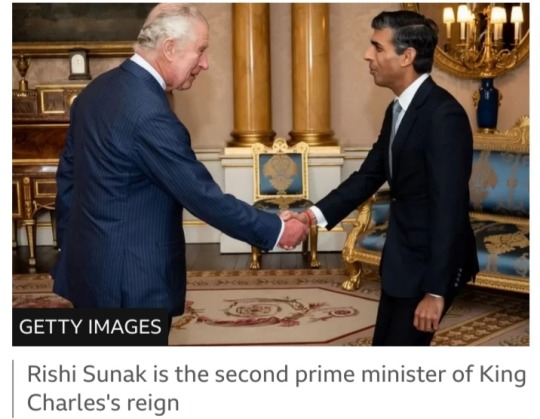
The King also has a number of official parliamentary roles:
Appointing a government — the leader of the party that wins a general election is usually called to Buckingham Palace, where they are invited to form a government. The King also formally dissolves Parliament before a general election
State Opening and the King's Speech — the King begins the parliamentary year with the State Opening ceremony, where he sets out the government's plans in a speech delivered from the throne in the House of Lords
Royal Assent — when a piece of legislation is passed through Parliament, it must be formally approved by the King in order to become law. The last time Royal Assent was refused was in 1708
In addition, the monarch leads the annual Remembrance event in November at the Cenotaph in London.
The King also hosts visiting heads of state, and regularly meets foreign ambassadors and high commissioners.
For his first state visit, Charles visited Germany, where he became the first British monarch to address the country's parliament, speaking in English and German.
The King then travelled to France for a three-day state visit in September and to Kenya for a four-day state visit in October, where he acknowledged the "abhorrent and unjustifiable acts of violence committed against Kenyans during their independence struggle."
He also delivered the opening address at the COP28 climate conference in Dubai in December, where he said: "The Earth does not belong to us."

Charles is also head of the Commonwealth, an association of 56 independent countries spanning 2.5 billion people.
He is head of state for 14 of these, known as the Commonwealth realms, as well as the Crown dependencies - the Channel Islands and the Isle of Man.
The Queen supports the King in carrying out his work and undertakes her own public engagements on behalf of the 90 charities she supports.
Where does the Royal Family get its money?
The Royal Family receives an annual payment from the taxpayer, known as the Sovereign Grant, which is used to pay for official expenses, such as the upkeep of properties and staff costs.
The amount is based on a proportion of the profits of the Crown Estate, a property business owned by the monarch but run independently.
It had assets worth £16.5bn in 2022.
The Sovereign Grant was worth £86.3m in 2022-2023, the same as in 2021-2022.
But total spending for the year was £107.5m, a 5% increase on the £102.4m spent the previous year, with more than £20m drawn from financial reserves to cover the shortfall.
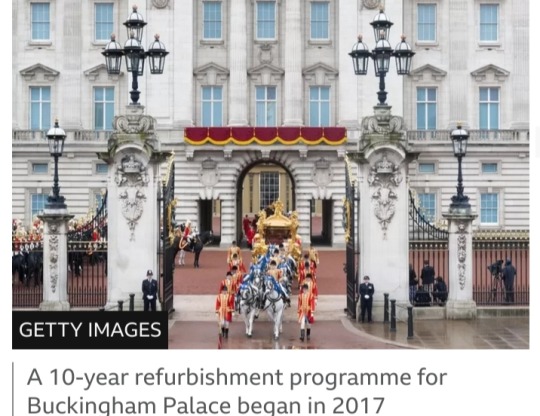
The King also receives money from a private estate called the Duchy of Lancaster, which is passed down from monarch to monarch.
It covers more than 18,000 hectares of land, including property in central London.
Worth £654m, it generates about £20m a year in profits.
The Duke of Cornwall (currently William, Prince of Wales) benefits from the Duchy of Cornwall, which mainly owns land in the south-west of England.
Worth £1bn, it generated a net surplus of £24m in 2022-23.

The King and Prince William receive the profits from the duchies personally, and can spend the money as they wish.
Both voluntarily pay income tax on the proceeds.
In addition, some other Royal Family members have private art, jewellery and stamp collections, which they can sell or use to generate income as they wish.
NOTE: Edited
#King Charles III#His Majesty The King#Prince William#British Royal Family#Queen Camilla#Buckingham Palace#red leather box#Commonwealth realms#Sovereign Grant#Crown Estate#Duchy of Lancaster#Duke of Cornwall
10 notes
·
View notes
Note
Then Meg said it's racist, and she connected every bad things happened to her to the race card.
>>My 2 cents: Meghan only uses the race card when it's the national topic of the day. When racism isn't the hot topic, she keeps it in her back pocket and uses 1) feminism or young mother, 2) mental health or 3) press harassment instead -- whichever is most germane to whatever's happening in national discourse.
In March 2021 when she was laying that groundwork in the Oprah interview, that came hot on the heels of Black Lives Matter Summer 2020, the 2020 election, and January 6th where everyone young politically-minded Americans were on heightened alert for racism and unconscious bias. That was the audience she was going after, not the Brits. If her audience was the Brits, she would've focused more on the press harassment and Diana 2.0 (as Harry did). In Summer 2022 when they taped Netflix, racism and BLM wasn't the center of national discourse like it had been in 2020. So they didn't go into the racism claims in the docuseries.
And IMO that's why her stories change all the time. She changes her truth to fit in with whatever people are talking about for the SEO gains that makes her appear popular and drive hits/clicks to Archewell for publicity.
Good point. I hadn't considered the BLM connection.
65 notes
·
View notes
Text
Addendum to Overview and Criteria for Gothic Fiction
When I wrote this thing about gothic novels I only mentioned Friedrich Maximilian Klinger's stageplay Sturm und Drang that premiered in 1777 and lent its name to a proto-Romantic artistic era in Germany.
I completely neglected to consider the influence of Jacob and Wilhelm Grimm's Kinder und Hausmärchen or "Household Tales" published on the 20th of December 1812, because I was focusing on English-language gothic literature, and Margaret Raine Hunt did not translate this collection into English until 1884. (I elected not to measure how many upperclass Englishwomen would be educated to fluency in German before a translation of the Grimm's text was published.)
The Picture of Dorian Gray is a novel by Oscar Wilde published in April 1891. He published a collection of shorter fairy tales before, The Happy Prince and Other Tales in May 1888, but like Wilde's technically-perfect-yet-passionless aesthetic poetry I personally consider them rather twee or prankish. The Picture of Dorian Gray makes a more interesting showcase of gothic fairy tale.
Literary critic and gold-trophy Worst Human Being in History of the Year 1814 Marquis Donatien Alphonse François de Sade keeps turning up in my gothic literature research like a bad penny. (I've read the Marquis's books, they're horrible, I hated them.) His literary criticism remains connected with the gothic, having first theorized in Idée sur les Romans (translated into Some Thoughts on the Novel) that the upheaval and slaughter of the French Revolution inspired authors to get some horror into their Romanticism, and also that the introduction of the Supernatural in the gothic novel posed a dilemma innate to the genre: Either it gets explained, and then the mystique is gone (I'll say this is me about Old Gods of Appalachia when the witches turned cosmic horror into calculated urban fantasy)...or it never gets explained, and then the reader remains at a loss (I'll say this is me about Picnic at Hanging Rock).
What I think the Marquis didn't consider, because The Picture of Dorian Gray was long after his time, was Wilde's creation of a marvelously original "Zaubermärchen" (magic fairytale)—the poetic justice, and the poetic logic that is exhibited in such a way that it only needs intuition rather than explanation. Dorian Gray is so sure he figured something out about his wish, so exactly, but the way the "magic" in this gothic 19th-century fairy tale truly operates makes a tidy and particular sort of sense that is magic of its own.
Grimm, Jacob, and Wilhelm Grimm. The Original Folk and Fairy Tales of the Brothers Grimm: The Complete First Edition. Translated by Jack Zipes, Princeton University Press, New Jersey: 2016.
@rwoh I'm trying to practice dual-mode citations what is this
Grimm, Jacob, Grimm, Wilhelm & Zipes, Jack (Trans.). (2016). 😥 ...wat whas that... The Original Folk and Fairy Tales of the Brothers Grimm: The Complete First Edition. Princeton University Press.
de Sade, Donatien Alphonse François. Some Thoughts on the Novel. Translated by R.J. Dent, Oneiros Books, 2021.
de Sade, Donatien Alphonse François, and R.J. Dent (Trans.). (2021). Some Thoughts on the Novel. Oneiros Books.
I don't have to cite The Picture of Dorian Gray, right? You all are the dark academia subculture, you all know by now what The Picture of Dorian Gray is.
#gothic literature#goth lit#dark academia#The Picture of Dorian Gray#Oscar Wilde#the Marquis who must not be named
6 notes
·
View notes
Text
Heroes
I was troubled, but also very moved, by the death of Alexei Navalny, the personality at the core of the resistance movement in Russia struggling to oppose the dictatorial and oppressive policies of the Putin regime. What exactly happened is not at all clear. At the time of his death, Navalny was imprisoned in a penal colony in Western Siberia in a place called Yamalo-Nenets near the Arctic Circle. According to the warden, he was taking a walk just two weeks ago after telling some guards that he didn’t feel at all well. And then he collapsed. The prison authorities claim to have done all they could to resuscitate him, but were, they said, regretfully unsuccessful, as result of which regretted unsuccess he was dead by mid-afternoon. His body was then held for well over a week and then finally released to his family for burial. And so ended the life of one of the world’s true heroes, a man who not only put his life on the line to stand up for his beliefs, but who personally embodied the struggle for human rights in today’s Russia. Yehi zikhro varukh. May his memory be a blessing for his co-citizens in Russia and for us all.
There’s a lot to say about Navalny, but the detail—one among many—that is particularly resonant with me has to do with his return to Russia in 2021, an act that was as noble as it was death-defying. By 2021, of course, Navalny had a long history of being a thorn—and an especially sharp one at that—in the side of Vladimir Putin. He had led countless demonstrations against the Putin government. He repeatedly accused, certainly correctly, Putin of engineering his own victories whenever he stood for re-election as Russia’s president. And he openly opposed the war against Ukraine.
Navalny tried several times to gain a foothold in the bureaucracy he so mistrusted. He ran for mayor of Moscow in 2013. And then he ran for president of Russia in 2018, a move that was in and of itself daring given that he had previously been found guilty of embezzlement, which detail would normally have disqualified him from running for elected office despite the fact that there appears to be no reason to think that the verdict was just or reasonable. But the real reason Navalny was such a problem for Putin was that he appeared to be unfazed by the forces of government, including the Russian judiciary, that were openly and brazenly arrayed against him. And so the government eventually took matters to a new level.
In 2020, on a flight to Moscow, Navalny took ill and ended up on a ventilator in the Siberian city of Omsk, where his airplane had been obliged to make an emergency landing. It didn’t take doctors long to realize that he had been poisoned. (It later came out that his clothing, including his underwear, had somehow been suffused with the Novichok nerve agent, a poison known to have been used by Russia in the past to murder dissidents abroad.) Eventually, the German government, acting unilaterally, sent an airplane to Omsk to bring Navalny to Germany. Amazingly, this actually worked. And it was in Berlin that doctors at the famous Charité Hospital determined with certainty that Navalny had been the victim of an unsuccessful attempt on his life and that he had definitely been poisoned. Remarkably, his life was saved and he recovered. And then, in January of 2021, he returned to Russia.
Because Navalny had been convicted in a 2014 trial that was almost certainly politically motivated and unjust, he had theoretically been forbidden to leave Russia even for medical treatment. And so was he arrested at the Moscow airport upon his return to Russia and imprisoned to await a judge’s decision about his future. And it was just a month after that, in February of 2021, that a Moscow judge decreed that his suspended sentence, minus time served, would be replaced with an unsuspended one and that Navalny would have to serve two and a half years in a Russian prison. He was sent to one prison, then to another. Eventually, the government determined that it did not want to face a freed Navalny in less than three years and so began new proceedings against him again, this time charging him with fraud and contempt of court. In March of 2022, just two years ago, he was found guilty of all charges and sentenced to nine years in a maximum security prison. And then, because even nine years was apparently not long enough, Navalny was put on trial again last summer and sentenced to an addition nineteen years on extremism charges. And so he ended up in the Arctic Circle prison in which he died two weeks ago at the age of forty-seven.
Navalny’s is a long, complicated story. But the one detail that stands out to me, the single part of the story that is the most resonant with me—and with my lifelong interest in the concept of heroism—has to do with Navalny’s decision in January 2021 to leave safety in Berlin and return to Russia. He had every reason to expect that he would be arrested upon return. He had no reason to suppose that any future trials to which he would be subjected would be just. He surely knew not to expect clemency or mercy from Vladimir Putin, the man behind all the juridical procedures overtly and unabashedly designed to silence him. And yet he chose to return—not specifically, I’m sure, because he wanted to die or because he wanted to participate in yet another crooked trial, but because he saw himself as a moral human being who had been granted the opportunity to inspire his co-citizens to demand justice and freedom for themselves and for their nation.
I’ve written in this space, although not too recently, about my boundless admiration for Dietrich Bonhoeffer, the German pastor who was safe and sound in New York when the Second World War broke out, but who made the noble (and eventually fatal) decision to return to Germany and there to try to inspire people to resist Nazism and to turn away from the path of ruinous and fascist barbarism down which the Nazi government was intent on leading the nation. (To revisit my comments about Bonhoeffer from 2011, click here.) Here was, in my eyes, a true hero: a man fully committed to his own ideals who made the conscious decision to leave the safe haven he had already found and to travel to a land that would probably, and which eventually did, kill him. To me, that decision to risk everything to attempt, even quixotically, to do good in the world represents the essence of heroism. It came to naught, of course. He did a lot of good for a lot of people, but, in the end, he paid the big price. On April 8, 1945, just a month before the end of the war, Bonhoeffer was tried on the single charge of treason in a court set up in the Flossenbürg concentration camp. There were no witnesses. No evidence against him was brought forward, nor was a transcript of the proceedings made. He was found guilty, apparently on Hitler’s personal order, and executed the next day in a way that was specifically intended to maximize his personal degradation and agony. (Eric Till’s 2000 movie, Bonhoeffer: Agent of Grace, is a worthy attempt to tell Bonhoeffer’s story even if the director couldn’t quite bring himself to depict the barbarism of Bonhoeffer’s final moments in any detail, let alone explicitly. For a more detailed account of his life, I recommend Eric Metaxas’s 2020 biography, Bonhoeffer: Pastor, Prophet, Martyr, Spy, which I read a few years ago and enjoyed immensely.)
So, two men who lived scores of years apart, who spoke different languages, who came from different countries. One, a political man fully engaged by the political process. The other, a man of God fully in the thrall of his own calling to preach God’s word in the world and to inspire others to seek justice and to act righteously. But both heroes in my mind—both fully safe in a place their tormentors could not reach them and yet both of whom made the decision to return to their separate homelands to seek out in those places the destiny to which each felt called. Would I have left New York in 1939 or Berlin in 2021 to risk my own life to follow the destiny I perceived to be my own? I’d like to think I would have. Who wouldn’t? But we don’t all have it in us to act that boldly, to risk everything to be ourselves fully and in the most noble way possible. To be a man in full—or a woman in full—is never quite as easy in real life as it sounds as though it should be on paper. And that is why I admire those two men, Bonhoeffer in his day and Navalny in ours—and their willingness not merely to talk the talk, but truly—and at their own mortal peril—to walk the walk. May they both rest in peace!
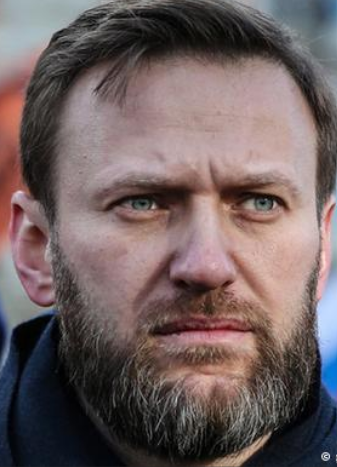
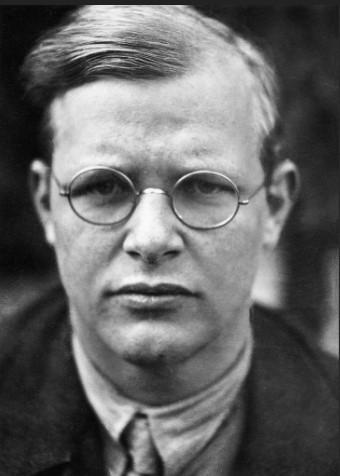
4 notes
·
View notes
Text
Almost every American has thought about the prospect of a second Civil War. Considering the man hiding pipe bombs around DC last election year, it becomes clear why this would come to mind. Which is why this election season is the perfect opportunity to release a movie about a modern civil war written by an Englishman who quite apparently doesn't know anything about American culture, politics, or small unit tactics.
Alex Garland's Civil War is a movie about the fall of democracy as the US is shattered by a violent military conflict as its fascist President violates the constitution in order to retain power, but it actually wants to be a movie about a cozy witch in a small German village in the alps. Ok not really. This is a movie that promises to be about political violence in America but is really about War Journalism. It tries to do both and does none of them well. But first and foremost it's a showcase of regrettable AR furniture and trite culture war references.
After January 6th, 2021, I was discussing the Capitol riots with some right-voting blue-collar workers, and the most memorable takeaway from that conversation was being told "it was our turn." This one sentence told me everything about American cultural rage that this film completely misunderstands.
Every now and then I come across a film that's very good from a visual and structural standpoint but completely falls apart thematically. This is Civil War. Alex Garland knows how to make movies, and this is a solid film that knows how to position needle drops and position the camera to really Say Something About America. Except it doesn't do that last thing.
Politically, this is a film you could make if you fed the AI bot that writes Nancy Pelosi's campaign donation emails ten thousand hours of January Sixth footage and asked it to write an article for The New Republic. Close readings reveal that this is a film about Covid, particularly journalism, but Garland shoehorns the story he wants to tell about journo ethics Cloverfield-style into a much more complicated narrative. It's simply intellectual laziness to make a movie about a morally and politically complicated war and then handwave it away with a simple "it doesn't matter." You're releasing this on an election year! This is a movie that needs a spine! How does Micheal Bay have a more biting criticism of American presidential candidates in his movies than you do?
The movie isn't politically neutral necessarily. Nick Offerman looks exactly like a certain 45th president of the United States (he even dissolves the FBI). There's a proud boy/boogaloo boy militia committing war crimes. One of the main battles we see is fought in Charlottesville, a city that saw little fighting during the actual Civil War but is infamous for the 2017 murder of a counterprotestor at a confederate statue rally. And let us not forget the film's much-quoted "what kind of American are you?" segment so prominently displayed in the trailers. The movie displays the prototypical NPR host handwringing, and this level of political commentary only serves to make the film feel even more out of touch, made all the more lukewarm at the film's halfhearted play at neutrality in the pursuit of something that #makesyouthink.
The film is like Apocalypse Now! if Coppola really wanted to shoehorn in a thematically irrelevant main plot and never answer any of the questions raised by the much more interesting events that make up the movie's backdrop. It's like Children of Men if the director didn't really care about the atrocities his characters were witnessing as much as he just wanted to make a roadtrip movie. It's not bad, it's lazy, and this makes me angrier.
This is a movie that reminded me about Greta Gerwig's Barbie. A very well shot film with a solid director, great cinematography, and no idea what its message is. Except Garland didn't have a feel good montage at the end to save the movie for him. Just underwhelming combat. The only thing this film got remotely right about a modern American Civil War 2 is the fact that the Ford Excursion is the perfect vehicle to take into a war zone.
No matter how gorgeous the cinematography, don't let this movie fool you.
The White House isn't so cartoonishly simple to storm. Attack Helicopters would not be performing air support roles that close to buildings. M4 pattern rifles have a much sharper report. An abandoned JC Penny doesn't mean that America has fallen, it just reminds you that the Shopping Mall was never a sustainable business practice. The sniper scene is really good, I'll admit, but also not how any of this works.
This movie lacks the spine and the conviction to say anything real about the American Condition in any meaningful way other than "they own guns and experience cultural polarization," a take much too bland to be worth the price of tickets + popcorn.
6 notes
·
View notes
Text
The vice-president of the court said that the party's political concept was incompatible with the German constitution's guarantee of human dignity.
Germany's highest court ruled on Tuesday that a small far-right party will not receive state funding for the next six years because its values and goals are unconstitutional and aimed at destroying the country's democracy.
In its judgment, the Federal Constitutional Court wrote that Die Heimat, formerly known as the National Democratic Party of Germany (NPD), "continues to disregard the free democratic basic order and, according to its goals and the behaviour of its members and supporters, is aimed at its elimination".
Presiding Judge Doris Koenig, the court's vice-president, explained the unanimous decision by saying that the party's political concept was incompatible with the guarantee of human dignity as defined in Germany's constitution, the Basic Law.
Die Heimat adheres to an ethnic concept of German identity and the idea that the country's "national community" is based on descent, the judge said.
"The propagation of the ethnically defined community leads to a disregard for foreigners, migrants and minorities that violates human dignity and the principle of elementary legal equality," Koenig said.
The German government, as well as the lower and upper houses of parliament, took the party to court. They presented evidence that they said proved Die Heimat was a racist organisation, with anti-Muslim and anti-Semitic ideology, and also pointed to its rejection of transgender people.
The government created the possibility of denying state funding to a political party after two attempts to ban Die Heimat failed. German news agency dpa reported.
Party leader Frank Franz played down the significance of Tuesday's ruling.
"Yes, it's not nice for us," Franz said, according to dpa. "But anyone who thinks this will throw us out of the game and stop us is very much mistaken."
How much money did Die Heimat receive?
Political parties in Germany receive financial support mostly based on their representation in state, national and European parliaments.
Die Heimat has received no state support since 2021. It received around €370,600 in 2016, when it won 3.02% of the vote in state elections in the eastern state of Mecklenburg-Western Pomerania, according to dpa.
Another far-right party, the Alternative for Germany (AfD), has been surging in recent opinion polls. Recent polls have put the AfD in second place nationally, with support of around 23$, well above the 10.3% it won in Germany's last federal election in 2021.
In its eastern German strongholds of Brandenburg, Saxony and Thuringia, polls show the AfD as the most popular party ahead of elections this autumn.
Leading German politicians have discussed the possibility of trying to ban the AfD or exclude it from financial support, but no one has yet made a serious attempt to do so.
Should Germany ban AfD? What impact could this have?
More than 800,000 people took to the streets of Germany's major cities this weekend to denounce the far-right party.
The demonstrations followed last week's news that some members of the far-right party had attended a secret meeting in November last year where they allegedly discussed plans for mass deportations of immigrants and Germans with a migrant background.
The scandal has revived a row over whether the country's largest far-right party should be banned.
German Interior Minister Nancy Faeser welcomed the Constitutional Court's decision on Tuesday, saying it "sends a clear signal: Our democratic state does not finance enemies of the constitution.
"The forces that want to corrode and destroy our democracy must not receive a single cent of state funding to do so," Faeser added. "Even if the constitutional hurdles for future proceedings remain high, we now have another tool to protect our democracy."
4 notes
·
View notes
Text
Events 3.5
1953 – Joseph Stalin, the longest serving leader of the Soviet Union, dies at his Volynskoe dacha in Moscow after suffering a cerebral hemorrhage four days earlier.
1960 – Indonesian President Sukarno dismissed the Dewan Perwakilan Rakyat (DPR), 1955 democratically elected parliament, and replaced with DPR-GR, the parliament of his own selected members.
1963 – American country music stars Patsy Cline, Hawkshaw Hawkins, Cowboy Copas and their pilot Randy Hughes are killed in a plane crash in Camden, Tennessee.
1963 – Aeroflot Flight 191 crashes while landing at Aşgabat International Airport, killing 12.
1965 – March Intifada: A Leftist uprising erupts in Bahrain against British colonial presence.
1966 – BOAC Flight 911, a Boeing 707 aircraft, breaks apart in mid-air due to clear-air turbulence and crashes into Mount Fuji, Japan, killing all 124 people on board.
1967 – Lake Central Airlines Flight 527 crashes near Marseilles, Ohio, killing 38.
1968 – Air France Flight 212 crashes into La Grande Soufrière, killing all 63 aboard.
1970 – The Treaty on the Non-Proliferation of Nuclear Weapons goes into effect after ratification by 43 nations.
1973 – An Iberia McDonnell Douglas DC-9 collide in mid-air with a Spantax Convair 990 Coronado over Nantes, France, killing all 68 people abord the DC-9, including music manager Michael Jeffery.
1974 – Yom Kippur War: Israeli forces withdraw from the west bank of the Suez Canal.
1978 – The Landsat 3 is launched from Vandenberg Air Force Base in California.
1979 – Soviet probes Venera 11, Venera 12 and the German-American solar satellite Helios II all are hit by "off the scale" gamma rays leading to the discovery of soft gamma repeaters.
1981 – The ZX81, a pioneering British home computer, is launched by Sinclair Research and would go on to sell over 11⁄2 million units around the world.
1982 – Soviet probe Venera 14 lands on Venus.
1991 – Aeropostal Alas de Venezuela Flight 108 crashes in Venezuela, killing 45.
1993 – Palair Macedonian Airlines Flight 301 crashes at Skopje International Airport in Petrovec, North Macedonia, killing 83.
2001 – In Mina, Saudi Arabia, 35 pilgrims are killed in a stampede on the Jamaraat Bridge during the Hajj.
2002 – An earthquake in Mindanao, Philippines, kills 15 people and injures more than 100.
2003 – In Haifa, 17 Israeli civilians are killed in the Haifa bus 37 suicide bombing.
2011 – An Antonov An-148 crashes in Russia's Alexeyevsky District, Belgorod Oblast during a test flight, killing all seven aboard.
2012 – Tropical Storm Irina kills over 75 as it passes through Madagascar.
2012 – Two people are killed and six more are injured in a shooting at a hair Salon in Bucharest, Romania.
2018 – Syrian civil war: The Syrian Democratic Forces (SDF) pause the Deir ez-Zor campaign due to the Turkish-led invasion of Afrin.
2021 – Pope Francis begins a historical visit to Iraq amidst the COVID-19 pandemic.
2021 – Twenty people are killed and 30 injured in a suicide car bombing in Mogadishu, Somalia.
2023 – The 2023 Estonian parliamentary election is held, with two centre-right liberal parties gaining an absolute majority for the first time.
2023 – A group of four prisoners escape from the Nouakchott Civil Prison, before being caught the next day.
2 notes
·
View notes
Text
Given that many of Europe’s populist parties have Russia-friendly inclinations, it is perhaps not surprising that they often like to parrot Kremlin talking points. These days, that includes calling for an end to Western sanctions against Moscow, as many European parties ranging from the far right to the far left have demanded.
The usual narrative behind the demand to lift sanctions against Moscow is basic: France’s National Rally, Germany’s Alternative for Germany, and Hungarian Prime Minister Viktor Orban all argue that sanctions have backfired, harming European economies while not hurting Moscow. With populist parties across the European Union gearing up for elections to the European Parliament in June, such narratives will only gain in prominence. That makes it high time to debunk these erroneous claims.
The most popular talking point for Russia-friendly politicians is that sanctions are ruining European companies and consumers. The most widespread of these claims—that sanctions have caused high energy prices (and inflation) in Europe—is the easiest to disprove: It was Russia’s attack on Ukraine and gas blackmail against Europe that set off the spike in global hydrocarbon prices in early 2022. Western countries only began to impose sanctions on Russia’s energy exports in November of that year, when oil and gas prices were already in retreat.
Another claim is that sanctions are penalizing the EU’s export-oriented firms, which have lost access to the Russian market. The reality, however, is probably more benign: Russia has never been a major market for EU firms, with Russian businesses buying just 4 percent of EU exports in 2021. Considering that about half of EU exports to Russia fall under sanctions, this means that only 2 percent of EU exports are affected—hardly a make-or-break figure.
Country-level data from Centre d’Etudes Prospectives et d’Informations Internationales, a French research center, confirms this assessment. It shows that the impact that sanctions against Russia have on the French economy is almost negligible, with only 0.8 percent of French exports, or about 4 billion euros ($4.4 billion), affected. For perspective, this represents 0.1 percent or so of French GDP. The study only covers France, but these findings would probably not be drastically different in other EU economies. Alongside German companies, French firms were among those in Europe that had the deepest ties to Russia. This suggests that firms in many other European countries are even less affected.
Another version of the Kremlin-friendly claim that sanctions are crushing European economies rests on the idea that EU firms were forced to abandon their investments in Russia because of sanctions. The Financial Times, for instance, calculated that between the start of the full-blown invasion of Ukraine and August 2023, European businesses recorded losses of around 100 billion euros ($109.4 billion) from their Russia operations.
This figure may be accurate, but the idea that it has much to do with sanctions does not hold up to scrutiny. At this stage, sanctions do not prevent European firms from doing business in Russia except in some specific sectors, such as defense. Instead, European companies’ losses in Russia have two other causes. The first is that many companies have chosen to pull out—for fear of reputational risks or because they do not want to pay Russian taxes and thus contribute to Moscow’s war.
The second cause of losses is a spike in asset seizures, with the Kremlin forcing many European firms to sell their assets under value—in some cases for just one ruble. In other words, even in a hypothetical world without sanctions, European firms that once bet on the Russian market would now face large-scale losses. Of course, the Kremlin argues that expropriations are just a means of retaliation against sanctions. This line is only one more item in the long list of Moscow’s bogus claims that it only seeks to defend itself against Western aggression.
Another talking point that European populist politicians like to peddle is that European sanctions on Russian energy are not just costly—a false claim, as we have seen—but useless. There are several versions of this myth, but the most popular one is that the EU oil embargo and the oil price cap agreed upon by G-7 and EU member nations do not affect Russian oil producers because they were able to reroute oil shipments to India.
Indeed, Indian refiners now absorb the bulk of crude oil exports from Russia’s Baltic ports, which previously served Europe. Yet this view eclipses the fact that for Moscow, selling oil to Indian refiners is far less lucrative than selling it to Europe. Sea routes to India are far longer (and therefore costlier) than those to Europe. In addition, Indian buyers are able to drive a bargain: They believe they are doing the Kremlin a favor by compensating for the loss of the European market—and are therefore entitled to steep discounts on Russian oil.
A study from the Kyiv School of Economics shows that the damage to Russia is far from negligible. Over the past two years, the Kremlin lost an estimated $113 billion in oil export earnings, mostly due to the EU embargo on Russian oil. Last year, when both the EU embargo and the G-7/EU oil price cap became fully effective, Russia’s overall trade surplus shrank by 63 percent to $118 billion, constraining the Kremlin’s financial resources to wage the war in Ukraine.
This year may not be any better for Russian oil exporters: Last month, the Kremlin announced that oil firms would need to give up part of their profits to compensate the state for lower export earnings. For the likes of Russian oil company Rosneft, this is the first time that Moscow is asking domestic energy firms for direct help in financing the war effort.
As sanctions enforcement steps up, the idea that sanctions are useless will hold even less water. Since October, the United States imposed sanctions on 27 tankers that had been transporting Russian oil in circumvention of the G-7/EU oil price cap, a measure that makes it illegal for any firm based in either bloc to do business with these tankers. This highlights a drastic change in Western sanctions interpretation. Until recently, the price cap only applied when a G-7 or EU-based shipping or insurance company was involved in transporting Russian oil. Washington now interprets the link to Western companies far more broadly.
For example, Liberia-flagged tankers, which make up a significant share of Russia’s ghost fleet, are now liable to the oil price cap because Liberia outsources its flagging operations to a U.S.-based company. In parallel, Western countries have stepped up pressure on Indian refiners in a bid to prompt them to ditch Russian supplies. To the Kremlin’s dismay, these efforts appear to be effective: Since the start of this year, Indian imports of Russian crude have gradually dropped by about one-third from their May 2023 peak.
The populists’ argument that sanctions harm Europe more than they hurt Russia does not hold up to scrutiny. The reality is that the impact of these measures on European companies is small, whereas Russia is facing increasing headwinds as it tries to reroute its crude away from Europe.
The claim that sanctions are costly and ineffective is easy to debunk, but this narrative does not appear likely to go away any time soon. As Russia-friendly politicians step up their campaigning for the European Parliament and other elections, one can only expect these talking points to become ever more prevalent in the coming weeks. That may be yet another sign that these myths are wrong: If sanctions were not having a serious effect on Russia, the Kremlin and its allies in the West would probably not spend as much energy trying to undermine them.
6 notes
·
View notes
Photo
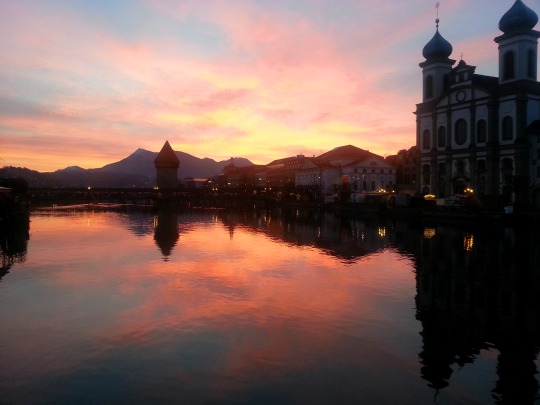

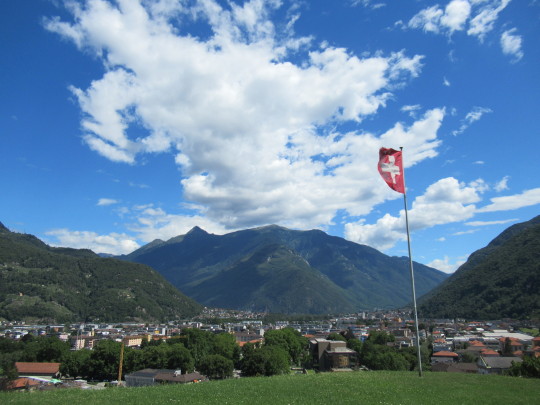





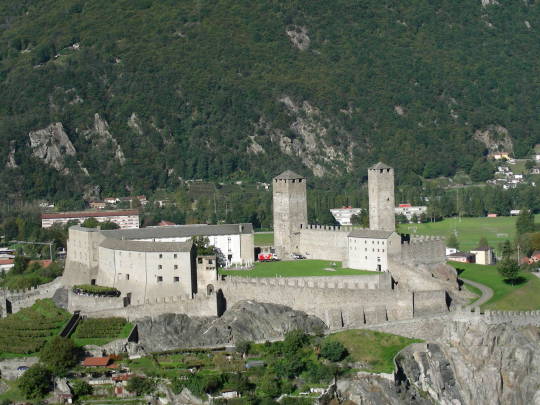
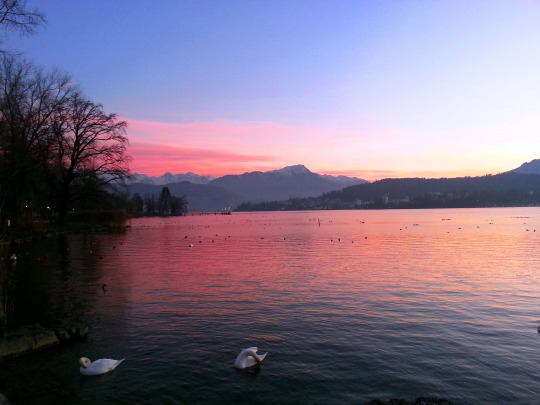
The Old Swiss Confederacy was formed with the signature of the Federal Charter on August 1, 1291.
Swiss National Day
Swiss National Day, celebrated on August 1, is the country’s national holiday. Although the Swiss Confederacy was founded on this date in 1891 and has been celebrated annually since 1899, it has only been an official holiday since 1994. Switzerland is a mountainous Central European country boasting several surreal lakes, villages, and the majestic Alps peaks. Its cities have medieval quarters and landmarks, such as the Zytglogge clock tower in Bern and the wooden chapel bridge in Lucerne. Furthermore, the country is renowned for its excellent ski resorts and adventurous hiking trails. Banking is an important industry, and Swiss watches and chocolate are well known around the globe.
History of Switzerland National Day
Every year on August 1, there are bonfires, paper lantern parades, fireworks, and Swiss flags swaying in the breeze. Swiss National Day was first established in 1891, yet it took more than a century for the hardworking Swiss to decide to hold a vote and give themselves the day off.
Switzerland is a mountainous landlocked country in South-Central Europe bordered by Austria, France, Germany, Italy, and Liechtenstein. With a geographic area of 41,285 square kilometers, the country is slightly smaller than the Netherlands and nearly twice the size of New Jersey in the United States.
Switzerland has fewer than 8.7 million people; the capital city is Bern, and the largest city is Zürich. German, French, Italian, and Rumantsch are the languages spoken in the country’s several regions, called cantons. According to the World Happiness Report 2021, the Swiss Confederation is the third-happiest nation on the planet, trailing only Finland and Denmark.
Geographically, the country is divided into three primary regions: the Swiss Alps in the south, the Alps in the north, and the Alps in the east. The Alps fade into the Swiss Plateau, which has a panorama of rolling hills, plains, and huge lakes. The Jura, a sub-alpine mountain range, lies to the northwest along the French/Swiss border.
Almost the entire country is a vacation destination. Switzerland features exquisite scenery with snow-capped mountains and ice-cold mountain lakes, melting glaciers, and mountain pastures that are ideal for downhill skiing in the winter. The relatively small country has four official languages as well as the world’s longest policy of military neutrality. The weather provides four distinct seasons that dramatically alter the scenery.
Switzerland National Day timeline
1648 Swiss Independence from Roman Rule
The Swiss gain independence from the rule of the Holy Roman Empire.
1848 Constitutional Amendments
Switzerland is established as a federal state under a new constitution.
1971 Women Can Vote
With 66% of the vote, a referendum guaranteeing women the right to vote in federal elections is approved.
2002 U.N. Membership
Switzerland becomes a member of the United Nations, an intergovernmental organization dedicated to world peace and economic growth.
Switzerland National Day FAQs
Is English spoken in Switzerland?
English is the most widely spoken non-national language in Switzerland, with over 45% of the population frequently speaking it.
What is Switzerland well known for?
When we think of Switzerland, we immediately think of ski resorts, lakes, chocolate, and cheese. The Alps mountains provide the ideal backdrop for Swiss people to raise cattle and create cheese and chocolate. They also make excellent ski trails and winter resorts.
What is the reason behind Switzerland's lack of capital?
Switzerland, unlike many other countries, did not have a genuine capital for many years. This was because it was a confederation for a long time, an association of separate cantons gathered together in a bigger body but without true cohesiveness.
Switzerland National Day Activities
Organize a family reunion
Participate in prayers and singing
Fly the Swiss flag
Celebrate by organizing large family reunions and barbecues. Communities throughout Switzerland mark the anniversary with bonfires, fireworks, and parades.
Prayer and the singing of the Swiss anthem are part of the official festivities (the Schweizerpsalm). Church bells sound around the country at 8:00 p.m.
No Swiss National Day celebration is complete without the Swiss flag. Wear the red and white with pride!
5 Interesting Facts About Switzerland
The Swiss Wed Late
There are 7,000 lakes in Switzerland
The right to bear arms
Diminutive
The Lowest Obesity Rate in Europe
A U.N. survey lists the average marriage age among Swiss people as 29.5 for females and 31.8 for males.
Switzerland's lakes are excellent for swimming and there are plenty to pick from.
Switzerland boasts one of the highest gun ownership rates among industrialized countries.
Switzerland has a land area of 15,942 square miles and a population of 8.67 million people.
Switzerland is a fantastic place to live a healthy lifestyle.
Why We Love Switzerland National Day
Celebrating Swiss culture
Celebrating the fight for independence
Inspiration for the future
Swiss National Day is a celebration of Swiss achievement and excellence. The observance is a time to reflect on the country’s contribution to the global community.
Throughout the year, different countries all over the world commemorate their independence days to remind various peoples of the struggles they had to endure to obtain freedom. These celebrations also have an educational value for the younger generation.
Often, achieving independence necessitates the sacrifice of thousands of lives. Every year, politicians seek to foster peace by commemorating Independence Day and paying honor to those who have died.
Source
#Avenches Roman Amphitheatre#Bern#Bundeshaus#Luzern#Lucerne#Vierwaldstättersee#Lake Lucerne#Swiss Alps#Bellinzona#Castelgrande#Melchsee Frutt#Old Swiss Confederacy#formed#1 August 1291#anniversary#Swiss history#Swiss national day#original photography#landscape#cityscape#countryside#River Aare#architecture#tourist attraction#Schweiz#Switzerland#Mount Pilatus#Mount Rigi#Stanserhorn#Seebodenalp
6 notes
·
View notes
Text
A collection of radical right figures including white nationalists and ultranationalist European leaders gathered in Manhattan for the New York Young Republicans Club’s (NYYRC) annual gala Saturday night, where that group’s president declared “total war” on perceived enemies.
“We want to cross the Rubicon. We want total war. We must be prepared to do battle in every arena. In the media. In the courtroom. At the ballot box. And in the streets,” NYYRC President Gavin Wax declared to a room full of supporters at 583 Park Ave., an event venue on New York’s Upper East side.
“This is the only language the left understands. The language of pure and unadulterated power,” Wax added.
At the five-hour event, which Hatewatch reporters attended, white nationalists Peter and Lydia Brimelow of VDARE hobnobbed with Steve Bannon, a former Trump adviser and White House official. Donald Trump Jr. was also in attendance.
Republicans publicly lauded members of an Austrian political party founded by World War II-era German Nazi party members. Racist political operative Jack Posobiec shared jokes across a table with Josh Hammer, the opinion editor of Newsweek. Multiple recently elected GOP congresspeople applauded Marjorie Taylor Greene, who told the NYYRC crowd in the event’s closing remarks that the Jan. 6, 2021, attack on the U.S. Capitol would have succeeded if she had planned it and that the insurrectionists would have been armed.
“Then Jan. 6 happened. And next thing you know, I organized the whole thing, along with Steve Bannon,” Greene said, referring to allegations that she had led reconnaissance tours of the Capitol for soon-to-be insurrectionists in the days prior to the violence.
“I will tell you something, if Steve Bannon and I organized that, we would have won,” she said, as attendees erupted in cheers and applause. “Not to mention, it would’ve been armed.”
WHITE NATIONALISTS AND NEOFASCISTS IN THE REPUBLICAN PARTY
Republican speakers repeatedly voiced an anti-democracy, authoritarian ideology, and extremists in the audience cheered wildly. White nationalists such as the Brimelows of VDARE and leaders from extreme far right European parties like Alternative for Germany (Alternative für Deutschland, AfD), whom German officials placed under surveillance for their ties to extremism, and Austrian Freedom Party (Freiheitliche Partei Österreichs, FPÖ), ate and drank in the same room as newly elected Republican congresspeople, such as Long Island and Queens-based George Santos, Georgia-based Mike Collins and Florida-based Cory Mills.
Hatewatch reached out to Santos and Mills by email before the event about their willingness to appear in a global collection of radical right, anti-democracy activists. They did not reply. Hatewatch reached out to Collins on Sunday morning but had not received a response at press time.
A STEVE BANNON SELFIE FOR VDARE
Bannon, the former Trump adviser, physically embraced the white nationalist Brimelows at NYYRC, spoke to the couple for several minutes and took a selfie with them. VDARE traffics in the great replacement conspiracy theory and has published defenses of writings that a terrorist who gunned down 24 people in an El Paso Wal-Mart in 2019 allegedly authored. Peter Brimelow attended the white supremacist American Renaissance conference in November, whose host has portrayed Black people as being subhuman. The Brimelows publish writing authored by Jason Kessler, who helped organize the deadly 2017 “Unite the Right” rally in Charlottesville, Virginia.
When Hatewatch attempted to speak to Lydia Brimelow after her conversation with Bannon to inquire about it, she walked away. Hatewatch did not get close enough to Bannon to ask him about the encounter with Peter and Lydia Brimelow.
‘PIZZAGATE’ JACK DESCENDS ON NEW YORK CITY
Posobiec, a radical right political operative, resides with his wife Tanya Posobiec in Hanover, Maryland. The couple took Amtrak Northeast Regional train 88 into New York’s Penn Station Moynihan Hall on Saturday afternoon to get to the NYYRC gala. Train 88 pulled in at around 3:45 PM ET, and a Hatewatch reporter observed Posobiec and his wife deboard and enter New York City.
“Antifa, don’t even think about it tonight,” Posobiec posted to Twitter three hours later, at 6:39 PM ET, with the location of the tweet marked Manhattan, NY.
NYYRC gave Posobiec a speaking slot and an Allen W. Dulles award, named after the former head of the CIA. NYYRC said in its December bulletin that the award is given to “an individual who embodies the virulent anti-Marxist spirit of [Dulles].”
Like the Brimelows, Posobiec has a well-documented history of radical right activism. He has boasted of his ties to the antigovernment Oath Keepers, fraternized with the Proud Boys, and at least twice, filmed propaganda videos with a pair of neo-Nazi brothers. He is primarily known for pushing the #Pizzagate disinformation campaign, which falsely suggested that Democrats ran a pedophile dungeon in the basement of a Washington, D.C., pizzeria.
Hatewatch spoke with Posobiec around midnight at the NYYRC event and asked him about his involvement in pushing the #StoptheSteal hashtag onto Twitter during the runup to the 2020 election. Although “Stop the Steal” became synonymous with the Jan. 6, 2021, attack on the U.S. Capitol building, Posobiec started tweeting the hashtag from his over-1-million-follower account as early as Sept. 7, 2020, two full months before anyone tallied any votes.
While responding to Hatewatch at NYYRC, Posobiec first attempted to associate the hashtag with Roger Stone and then with Ali Alexander, two of his collaborators. Then he called it “a meme.” He never explained why he abruptly started posting the hashtag in September 2020.
While answering questions, Posobiec grew testy with a Hatewatch reporter and described SPLC as a “domestic terror organization.” Posobiec called that reporter a “scumbag” and a “troll.” After Posobiec’s speaking tone became palpably agitated, a crowd formed and NYYRC executive secretary Viswanag “Vish” Burra escorted both Hatewatch reporters to the exit, physically shoving one of them.
NEWSWEEK FLAUNTS ITS RADICAL-RIGHT CREDENTIALS
Starting in May 2020, after editor Nancy Cooper and chief content officer Dayan Candappa brought political activist Josh Hammer to run Newsweek’s opinion section, the 90-year-old publication has emerged as a hub for opinion pieces authored by radical right activists. Newsweek has published the extremist Posobiec as well as 2020 election-lie pusher Raheem Kassam in recent years, and Hammer has also hosted both of them on his Newsweek-branded podcast. The three men sat together talking and laughing at table #6 during the NYYRC event, near the stage.
When QAnon influencer-turned-congressperson Marjorie Taylor Greene took the stage, Hammer stood up and applauded. When she endorsed former President Trump as her 2024 presidential candidate of choice, Posobiec turned to Hammer and grinned. In January, Florida Gov. Ron DeSantis invited Hammer on a tour of his office, and the Florida-based Newsweek editor has since hyped DeSantis as a potential presidential candidate.
“You gonna go up there, Josh?” Posobiec chided Hammer about Greene’s endorsement of Trump, eliciting laughter from the table.
A Hatewatch reporter approached Hammer after Greene’s speech, made an introduction and asked if he knew Peter Brimelow of VDARE.
“He’s right here, right now?” Hammer asked with excitement.
“I didn’t even know he was here!” Hammer said of the infamous white nationalist publisher. “I’m going to say Hi.”
The Hatewatch reporter asked Hammer how he got his job at Newsweek, and the opinion editor abruptly stopped talking. He asked the reporter to identify himself again. When the reporter did, Hammer’s expression slackened. He quickly claimed he did not know Peter Brimelow and left.
‘WHAT’S RACIST ABOUT PROJECT VERITAS?’
Multiple figures associated with Project Veritas, the hard-right propaganda group that engages in sting operations, attended the NYYRC gala. The group’s founder James O’Keefe and Project Veritas board member Matthew Tyrmand hobnobbed with NYYRC guests Saturday.
Legal trouble has entangled Project Veritas in recent months. Former associates sued Project Veritas in August, citing the creation of a “highly sexualized” work environment, which they claim included substance abuse and unpaid labor. (The group has denied these allegations.) In September, a jury in a civil case found that Project Veritas had “violated wiretapping laws and fraudulently misrepresented itself” during a sting operation targeting a group called Democracy Partners. The FBI raided O’Keefe’s home in November 2021 as part of an investigation into the alleged theft of a diary belonging to President Joe Biden’s daughter Ashley. (The group has claimed that they acted lawfully in obtaining the diary.)
Outside of the building on 583 Park Ave., O’Keefe argued with antifascist protesters, according to footage reviewed by Hatewatch. A different, self-described “independent video journalist” posted a series of clips to Twitter at 8:15 p.m., showing O’Keefe asking antifascist protesters on the corner of Park Avenue and 62nd Street, “What’s racist about Project Veritas?”
The same social media user posted a video to Twitter at 9:12 p.m. In it, O’Keefe could be seen standing on the street outside the venue alongside several other men, including Newsweek’s Hammer.
“Would you like to make a tax-deductible donation to Project Veritas?” O’Keefe asked the protesters.
Hatewatch observed Project Veritas’ Tyrmand sitting at table #4, the one closest to the center of the stage, alongside Trump-world power players Steve Bannon and former New York City mayor Rudy Giuliani. A recent New York Times report named Tyrmand and Bannon as key U.S. figures in an effort to depict Brazil’s November presidential elections as being fraudulent, after voters in that country pushed hard-right favorite Jair Bolsonaro out of office. Tyrmand, who is known for his ties to the global radical right, took the stage and lauded the ultranationalist European leaders in attendance.
“This is an all-star room, and I urge all of you to meet everybody here and continue to spend time together, getting to know each other, so we can fight the battle, arm in arm,” Tyrmand said of the European extremists, including the contingents from Austria and Germany.
ALMOST MIDNIGHT
Speakers including Trump Jr. and Greene sought to downplay the Republicans’ failure to secure a so-called “red wave” victory in the 2022 midterms by attacking such familiar right-wing targets as Joe Biden’s son Hunter Biden and LGBTQ+ people.
“The party is in a pretty good spot, but America may not be getting it. We have a party right now that is actually delivering for the American people. But what we don’t have [is] our same people in Washington, who can make those things happen,” Donald Trump Jr. told the crowd after he came on stage.
Greene suggested eliminating Democrat members of House committees in her closing speech, as a way of shifting the tide of power in Washington. She also told the audience Americans it was “almost midnight,” meaning they risked losing their country to perceived enemies.
Greene praised a Project Veritas video focused on LGBTQ+ education published by the group, saying it shows that teachers “pass around dildos, buttplugs and lube.” (The school issued a statement claiming “[Project] Veritas deceptively edited the video with malicious intent.”)
Greene expressed her gratitude to Project Veritas for their work.
“Thank you very much. We appreciate that,” she said to scattered applause.
#us politics#news#hatewatch#southern poverty law center#alt right#2022#New York Young Republicans Club#Gavin Wax#Lydia Brimelow#Peter Brimelow#VDARE#Steve Bannon#Jack Posobiec#Josh Hammer#Newsweek#Alternative for Germany#european politics#Austrian Freedom Party#George Santos#Mike Collins#Cory Mills#American Renaissance#Jason Kessler#Raheem Kassam#Project Veritas#James O’Keefe#Matthew Tyrmand#conservatives#gop#Republicans
18 notes
·
View notes
Text
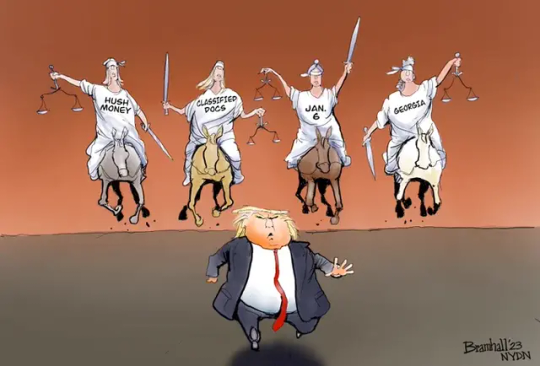
LETTERS FROM AN AMERICAN
November 13, 2023
HEATHER COX RICHARDSON
NOV 13, 2023
In a speech Saturday in Claremont, New Hampshire, and then in his Veterans Day greeting yesterday on social media, former president Trump echoed German Nazis.
“In honor of our great Veterans on Veteran’s Day [sic] we pledge to you that we will root out the Communists, Marxists, Racists, and Radical Left Thugs that live like vermin within the confines of our Country, lie, steal, and cheat on Elections, and will do anything possible, whether legally or illegally, to destroy America, and the American Dream…. Despite the hatred and anger of the Radical Left Lunatics who want to destroy our country, we will MAKE AMERICA GREAT AGAIN.”
The use of language referring to enemies as bugs or rodents has a long history in genocide because it dehumanizes opponents, making it easier to kill them. In the U.S. this concept is most commonly associated with Hitler and the Nazis, who often spoke of Jews as “vermin” and vowed to exterminate them.
The parallel between MAGA Republicans’ plans and the Nazis had other echoes this weekend, as Trump’s speech came the same day that Charlie Savage, Maggie Haberman, and Jonathan Swan of the New York Times reported that Trump and his people are planning to revive his travel ban, more popularly known as the “Muslim ban,” which refused entry to the U.S. by people from some majority-Muslim nations, and to reimpose the pandemic-era restrictions he used during the coronavirus pandemic to refuse asylum claims—it is not only legal to apply for asylum in the United States, but it is a guaranteed right under the Refugee Act of 1980—by claiming that immigrants bring infectious diseases like tuberculosis.
They plan mass deportations of unauthorized people in the U.S., rounding them up with specially deputized law enforcement officers and National Guard soldiers contributed by Republican-dominated states. Because U.S. Immigration and Customs Enforcement (ICE) doesn’t have the space for such numbers of people, Trump’s people plan to put them in “sprawling camps” while they wait to be expelled. Trump refers to this as “the largest domestic deportation operation in American history.”
Trump’s people would screen visa applicants to eliminate those with ideas they consider undesirable, and would kick out those here temporarily for humanitarian reasons, including Afghans who came here after the 2021 Taliban takeover. Trump ally Steve Bannon and his likely attorney general, Mike Davis, expect to deport 10 million people.
Trump’s advisors also intend to challenge birthright citizenship, the principle that anyone born in the U.S. is a citizen. This principle was established by the Fourteenth Amendment and acknowledged in the 1898 United States v. Wong Kim Ark Supreme Court decision during a period when native-born Americans were persecuting immigrants from Asia. That hatred resulted in Wong Kim Ark, an American-born child of Chinese immigrants, being denied reentry to the U.S. after a visit to China. Wong sued, arguing that the Fourteenth Amendment established birthright citizenship. The Supreme Court agreed. The children of immigrants to the U.S.—no matter how unpopular immigration was at the time—were U.S. citizens, entitled to all the rights and immunities of citizenship, and no act of Congress could overrule a constitutional amendment.
“Any activists who doubt President Trump’s resolve in the slightest are making a drastic error: Trump will unleash the vast arsenal of federal powers to implement the most spectacular migration crackdown,” Trump immigration hardliner Stephen Miller told the New York Times reporters. “The immigration legal activists won’t know what’s happening.”
In addition to being illegal and unconstitutional, such plans to strip the nation of millions of workers would shatter the economy, sparking sky-high prices, especially of food.
For a long time, Trump’s increasingly fascist language hasn’t drawn much attention from the press, perhaps because the frequency of his outrageous statements has normalized them. When Democratic presidential candidate Hillary Clinton in 2016 referred to many Trump supporters as “deplorables,” a New York Times headline read: “Hillary Clinton Calls Many Trump Backers ‘Deplorables,’ and G.O.P.* Pounces.” Yet Trump’s threat to root out “vermin” at first drew a New York Times headline saying, “Trump Takes Veterans Day Speech in a Very Different Direction.” (This prompted Mark Jacobs of Stop the Presses to write his own headlines about disasters, including my favorite: “John Wilkes Booth Takes Visit to the Theater in a Very Different Direction.”)
Finally, it seems, Trump’s explicit use of Nazi language, especially when coupled with his threats to establish camps, has woken up at least some headline writers. Forbes accurately headlined yesterday’s story: “Trump Compares Political Foes to ‘Vermin’ On Veterans Day—Echoing Nazi Propaganda.”
Republicans have refused to disavow Trump’s language. When Kristen Welker of Meet the Press asked Republican National Committee chair Ronna McDaniel: “Are you comfortable with this language coming from the [Republican] frontrunner,” McDaniel answered: “I am not going to comment on candidates and their campaign messaging.” Others have remained silent.
Trump’s Veterans Day “vermin” statement set up his opponents as enemies of the country by blurring them together as “Communists, Marxists, Racists, and Radical Left Thugs.” Conflating liberals with the “Left” has been a common tactic in the U.S. right-wing movement since 1954, when L. Brent Bozell and William F. Buckley Jr. tried to demonize liberals—those Americans of all parties who wanted the government to regulate business, provide Social Security and basic welfare programs, fund roads and hospitals, and protect civil rights—as wannabe socialists.
In the United States there is a big difference between liberals and the political “Left.” Liberals believe in a society based in laws designed to protect the individual, arrived at by a government elected by the people. Political parties disagree about policy and work to change the laws, but they support the system itself. Most Americans, including Democrats and traditional Republicans, are liberals.
Both “the Left,” and the “Right” want to get rid of the system. Those on the Left believe that its creation was so warped either by wealth or by racism that it must be torn down and rebuilt. Those on the Right believe that most people don’t know what’s good for them, making democracy dangerous. They think the majority of people must be ruled by their betters, who will steer them toward productivity and religion. The political Left has never been powerful in the U.S.; the political Right has taken over the Republican Party.
The radical right pushes the idea that their opponents are “Radical Left Thugs” trying to tear down the system because they know liberal policies like Social Security, Medicare, environmental protection, reproductive rights, gun safety legislation, and so on, are actually quite popular. This weekend, for example, Trump once again took credit for signing into law the Veterans Choice health care act, which was actually sponsored by Senators John McCain (R-AZ) and Bernie Sanders (I-VT) and signed by President Barack Obama in 2014.
The Right’s draconian immigration policies ignore the reality that presidents since Ronald Reagan have repeatedly asked Congress to rewrite the nation’s immigration laws, only to have Republicans tank such measures to keep the hot button issue alive, knowing it turns out their voters. Both President Joe Biden and Homeland Security Secretary Alejandro Mayorkas have begged Congress to fund more immigration courts and border security and to provide a path to citizenship for those brought to the U.S. as children. They, along with Vice President Kamala Harris, have tried to slow the influx of undocumented migrants by working to stabilize the countries from which such migrants primarily come.
Such a plan does not reflect “hatred and anger of the Radical Left Lunatics who want to destroy our country.” It reflects support for a system in which Congress, not a dictator, writes the laws.
A video ABC News published tonight from Trump lawyer Jenna Ellis’s plea deal makes the distinction between liberal democracy and a far-right dictatorship clear. In it, Ellis told prosecutors that former White House deputy chief of staff and social media coordinator Dan Scavino told her in December 2020 that Trump was simply not going to leave the White House, despite losing the presidential election.
When Ellis lamented that their election challenges had lost, Scavino allegedly answered: “‘Well, we don’t care, and we’re not going to leave.” Ellis replied: “‘What do you mean?” Scavino answered: “The boss is not going to leave under any circumstances. We are just going to stay in power.” When Ellis responded “Well, it doesn’t quite work that way, you realize?” he allegedly answered: “We don’t care.”
*The GOP, or Grand Old Party, is an old nickname for the Republican Party.
—
LETTERS FROM AN AMERICAN
HEATHER COX RICHARDSON
#history#“vermin”#TFG#Letters From An American#Heather Cox Richardson#GOP#immigration#authoritarianism#fascim#fascism
3 notes
·
View notes